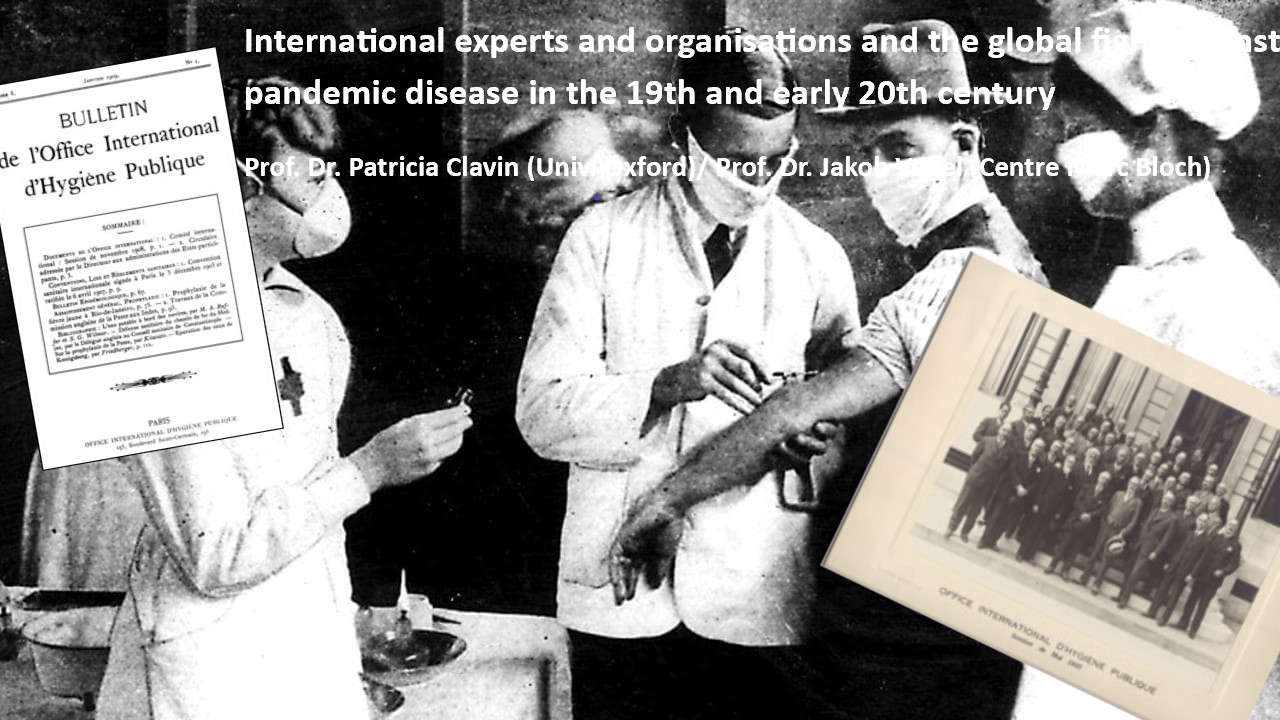
The current Coronavirus pandemic has returned public attention the long history of the fight against the global spread of infectious diseases, and the necessity of an international collaboration against their propagation. In Europe, and around the world, the fight against cholera, the plague, yellow fewer or the Spanish ‘flu, became a crucial issue during the 19th and early 20th centuries. It would lead to international cooperation in the field of public health, and ultimately, the creation of the World Health Organisation in 1948.
The course will explore how, like today, political tensions, and the inherent hierarchies of international relations, shaped transnational exchanges between experts and the search for effective strategies to stop the spread of the pandemic disease. These were evident during the foundational international sanitary congresses in the 19th and early 20th centuries, where imperial rivalry prompted European colonial powers to seek to dominate global networks set up to combat so-called “colonial diseases”. After 1918, the League of Nations and its Hygiene Section (subsequently called the Health Organization) facilitated new approaches and technologies in the emerging realm of global governance, which propagated the vision of a new policy of “public health”. At the same time, state rivalries and modes of imperial governance continued to shape the field.
The course will introduce to the topics and ongoing historiographical debates about the evolutions and tensions in the international approach to managing the ‘global currents of disease’ in the 19th and early 20th centuries. It will provide an insight into a flourishing field of research that brings together European, Imperial, international, and global history.
The course will take place every two weeks (first session Nov., 5) and integrate a one-day-seminar at the end of the semester (most likely Feb., 27).- Course owner: Jakob Vogel